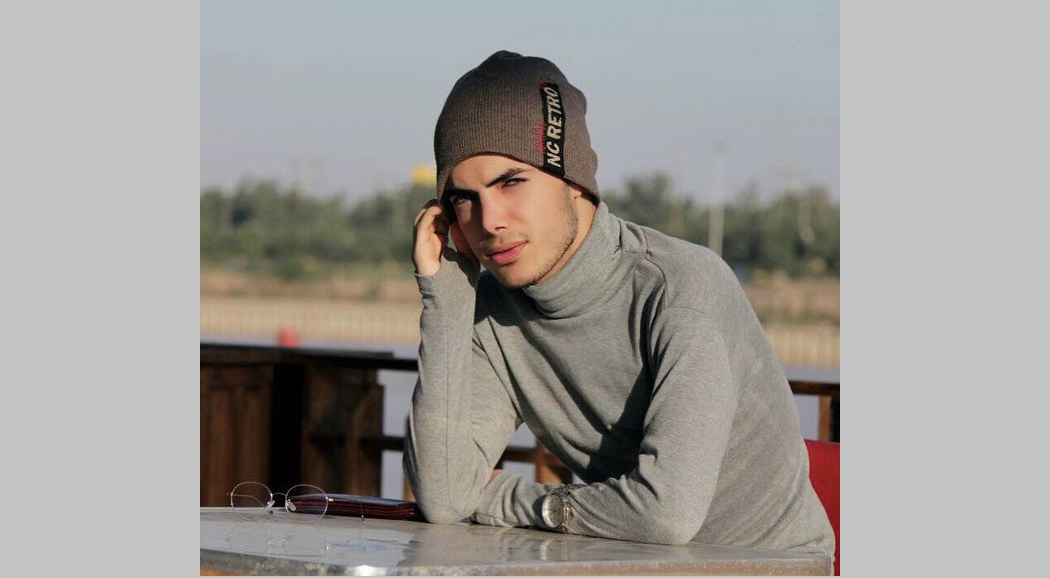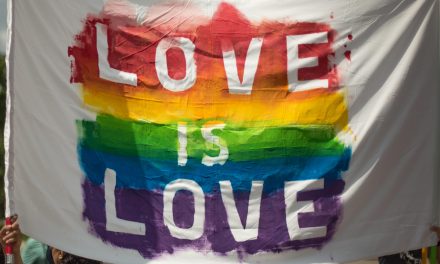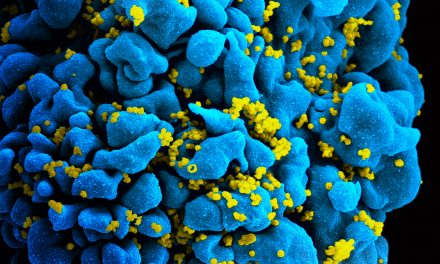(Photo Credits: Screengrab from Masih Alinejad’s Twitter Account)
A young gay man from Iran named Alireza (Ali) Fazeli-Monfared was reportedly murdered and beheaded on Tuesday, May 4, by his half-brother and cousins in an alleged honor killing after they discovered his sexual orientation. The suspects found out that Fazeli-Monfared was gay through the military service exemption card sent by Iran’s conscription organization a few days before the killing.
Fazeli-Monfared was not at home when the aforementioned military service exemption card arrived. The card stated that Fazeli-Monfared had been exempted from the country’s mandatory two-year military service due to “moral and sexual depravities such as transsexualism,” Iran International reports.
Way before this incident however, Fazeli-Monfared’s half-brother had already been repeatedly complaining to their father about how Alireza’s “appearance and the way he dressed” is a dishonor and a shame to the family, says IranWire.
Aghil Bayat, Fazeli-Monfared’s partner, told IranWire in an interview that the latter talked to his mother on the phone for the last time at 7pm on Tuesday. Shortly after their conversation, Fazeli-Monfared’s half-brother arrived and told him that their father wanted to see him. Fazeli-Monfared was then taken to the nearby village of Borumi.
Bayat said:
There was no news of him until Wednesday, when Alireza’s stepbrother [sic] called his mother and told her: ‘We have finished him off.’ In other words, he confessed to murdering Alireza. They found his body under some palm trees. It’s now with the medical examiner and his mother has been hospitalized because of the shock.
Fazeli-Monfared, who hailed from Khuzestan’s provincial capital Ahvaz, was only 20 years old. Contrary to some reports, no arrests have been made yet and Fazeli Monfared’s mother was only told otherwise by the police to “calm her down,” says NBC News.
According to Bayat, Fazeli-Monfared was filled with hope during the last few days of his life. Having been exempted from military service, he was planning to move to Turkey and join Bayat to “forge a new path and find a romantic relationship,” one that had “eluded him at home.”
“Nothing is more difficult than to expect to see somebody you love in a few days, and suddenly you hear he is dead,” Bayat, who is an Arab LGBTQI activist, said to IranWire. “Nothing is more difficult than to never be able to see him, or hear his voice, forever. This is an excruciating pain that will remain in my heart to the end of time.”
2-Alireza was killed by being beheaded by his family. After beheading him, the family dumped this poor man’s body under a tree outside of the city of Ahwaz. Alireza was about to flee Iran to join his boyfriend, who’s a refugee waiting for him in Turkey. #علیرضا_فاضلی_منفرد pic.twitter.com/QMqAoINHIm
— Masih Alinejad 🏳️ (@AlinejadMasih) May 8, 2021
My heart is broken for #Alireza – beheaded in Iran by his own brother for being gay. He was attempting to seek asylum in Turkey with his boyfriend. Only TWENTY years old. Imagine what his life would have been had he escaped? 😔💔 #AlirezaIsMyFamily #علیرضا_فاضلی_منفرد @6rangiran pic.twitter.com/tCjYzU7IXP
— Jackie Cox (@JackieCoxNYC) May 9, 2021
Honor killing, in certain cultures, is defined as the killing of a relative, mostly females and LGBTQ people. Britannica said that the “killers justify their actions by claiming that the victim has brought dishonor upon the family name or prestige.” Anti-gay “honor violence” persists to this day, according to a 2019 study published in The Journal of Interpersonal Violence.
Meanwhile, a report in 2020 by Iranian LGBT+ network 6rang revealed that “more than six in 10 queer people from Iran have been assaulted by anti-LGBT+ family members.” PinkNews added that almost half of them have been sexually assaulted in public.
Same-sex sexual activity is a crime in Iran and is punishable by death or imprisonment. Further, their law requires all male citizens aged 18 and above to serve in the military though gay and transgender people can “receive a medical exemption from service for their identity,” says NBC News. Iran has a military exemption law that says, in part, “a person can be freed from his military service duties, if he is ‘mentally ill’ (homosexual).” But this is a double-edged sword as getting exempted from the service also meant getting outed to their families.
Read more about this story here, here, and here.










Not one to espouse Morality within the ranks… We gays should be grateful to live within The United States…where we are relatively safe & secure. What happened in Iran is, unfortunate, not particularly uncommon, where we are hunted & killed by Fundamentalists…regardless of Country. Fundamentalists are dangerous because they use Religion as a justification to do what their unholy souls want to do . Religion because the default and thus, the justification to use “God’s Omniscience & Omnipotence’s gifts to do what they think will be best…now and later. We are blessed to live in The US…regardless of its imperfections.… Read more »
Religious people are sick in the head. Fuck them and their archaic primitive small little minds.
Those relatives surely knew he was going to leave. They could have lied to neighbors and said they made him leave. I cannot believe how weak these cowards are, that they don’t feel enough manhood to know a gay relative changes nothing. Such murders are projection: they kill what they cannot express in themselves, and to hide themselves from discovery.
This physical murder as well as emotional murder, in the name of honor or morality or religion, shows the perpetrators (including “religious” conservatives in the West) have no honor or morality.
I find this report to be somewhat ironic. Gays are constantly supporting the Islamic invasion from the Middle East. Everywhere I go, gays are always far leftists, and they typically support open borders and crow about “Islamaphobia.” Don’t they know that this is Islam? This is what Islamic people will do to them once they gain power. Also, these sissy gays should have the common sense to keep themselves out of the public eye, especially in Muslim countries. I personally cannot stand these over-the-top gays who march in parades and act so effeminate because they have taken over the face… Read more »
But iranians arent muslim fanatics idiot. They are actually more on the secular side. Stop falling for these cia planted psychological operations stories.
you are right,70-80 % of people do not practice islam in that country just has been hostaged by a fundamental and backwarded regime , even with this crazy regime sex change is legal in iran and change of gender on birth certificate due to liberal laws before islamic revolution for those uninformed people i should say that in 70s same sex marriage was legal in iran but unfortunately people are not properly informrd about other countries due to media censorship
I agree… these stories are basically psychological warfare trying to manufacture fear for some political agenda. the gays are so easily manipulated by these scare tactics. Iranians are not Islamic fanatics but Americans and westerners in general are all to stupid and easily manipulated. But not me!
You can’t claim that gays “are always far leftists” or that they support open borders (few people, of any sexuality, support “open” borders, instead they support a humane immigration system, a big difference) anymore than I can claim that all churches are like Westboro Baptist Church. Christianity is exactly free of hatred for people who are different. Consider the harsh anti-gay laws in Uganda, which were pushed by American fundamentalists. Or, the man in Atlanta who killed eight people because he felt he was being “tempted.” Fundamentalism–Christian, Islam or whatever–is the problem here because it renders people incapable of accepting… Read more »
Oops … that should be “Christianity isn’t exactly free of hatred.” This site needs an edit function!
are you kidding me, you know what is sicker and far more disgusting? you! and your damn lucky your not in the same room as I am
When someone ask me how I’m doing, I have a habit of saying I’m good….no complaints. No matter how bad things are….I know things could be worst. I feel really sorry for his mother and his friend. He died much too young…Really sad story!!!!!
All muslim countries are cesspools like that that. Their “immigrants” infected Europe with terrorism and religious fanaticism and should be banned. It is really a torture to live there as gay. I would never go visit a muslim country, ever!
But iranians arent muslim fanatics idiot. They are actually more on the secular side. Stop falling for these cia planted psychological operations stories.
“But iranians arent muslim fanatics idiot”
Yes they are, the country of Iran is run as a theocracy, which means the Iotola is in charge which mean s radical Islam is the religion. Calling others “idiot” when spreading misinformation doesn’t suit you, unless of course you are an Iranian operative.
Claiming that Iranians are more on the secular side is a tough argument to make when one considers that Iran is a theocracy. However, it isn’t the CIA that is painting Iranians as fanatics, it is US conservatives who are frantic to prevent any thawing of the icy relationship between Iran and the US.
Jesus are you really that stupid? Oh wait you must be a gay american then yes you probably are.
Religion is made-up myths used to control money and sex. Patriarchy uses this tool to control uneducated people in benighted societies.
Sounds like a fake story sorry
lol, google it dear
Yes another fake news story with some hidden political agenda. Wisen up gays!!!!
A very sad story, but not really one of homophobia as much as one of religious/cultural intolerance. Homophobia is a fear of homosexuals. He was murdered out of hate of his sexuality not fear of it. A phobia is an abnormal/irrational fear. In much of the Mideast culture it is anything but abnormal and is rationalized by their religious beliefs. What happened in this case was much worse than homophobia. A phobia is a mental disorder one does not have control over. This was a case of intolerance, a lack of compassion, and being raised in a culture that puts… Read more »
Well, thats their culture.
culture? killing someone? that’s not culture, it’s stupidity
Us empire does it all the time!!!! Not just the muslims
That we think barbarism and honor killings are stupid does not alter the thoughts or practices of those who don’t give a fuck what we think. Just sayin’…
Just as not all Christians are sexually frustrated fundamentalist murders like the guy that killed the massage parlor workers in Atlanta, neither are all Muslims brother-beheading fratricidal maniacs. Unfortunately for Mr. Fazeli-Monfared, his family is.
Actually Dave it is their culture. Stoning to death women who were raped = honor killing. Hanging or executing gay males and females = honor killing. Yes in this day an d time it is rather asinine to do so, but it is their culture and the stupidity goes back centuries.
Damn shame!!
Despairing this is.
And the Biden Administration supports Iran. Wake up America you are being played by the Democrats. They are constantly lying to you. They are globalist and you are not in their plan.
Oh stop it with the globalist shit. Biden is not pro iran if anything the us is against iran and this article is just another cia planted story to propagandize us into accepting war with iran
Dude, your tin foil beenie really needs adjusting
The seeds of globalism were planted by Richard Nixon and nurtured by Ronald Reagan. Last I looked, neither were Democrats. Unbridled capitalism is not the sole property of Republicans, they’re simply more shameless in their pursuit of world market share.
Where do you get the idea that supports Iran? Ooh, because Obaba negotiated a deal to restrict Iran’s abilitiy to produce highly-enireched uranium in exchange for other considerations that benefited them. “Such a bad deal,” Trump said as he backed out of the treaty. Instead he did, um, nothing. And Iran is now on a crash course to build the bomb. Tell me again what Biden is now doing that is more pro-Iran than that?
seems ironic that Biden becomes president and war breaks out in the middle east all backed by Iran. Wasn’t it the Obama / Biden administration who dropped billions of dollars in US cash on an Iranian tarmac which ended up funding their bomb building and terrorism?
Another common case when religion has overwhelmed being a Good Samaritan overcoming reality
I hope the half brother is beheaded for his crime!
Those of us living in America and the west are immensely blessed. Never, ever forget that…. We must also remember to fight the racism, and other phobias, that are still prevalent in our own community….
Savages
I find it strange that most of my Gay friends jump to the defense of Islam (yes Iran is an Islamic country) at the first hint of criticism of Islam. Even though you can trash Christians all day long.
I know they do this because nobody is persecuted more than Gay people and they are not about to stand by and let it happen to another group of people.
This is a mistake on the behalf of Gay people.
Islam is evil to its core.
Homosexuality is worthy of death in Islamic religion.
LOLOLOLOL my God you are so ignorant
Sad and sickening!
Its more honorable to be a murderer killing your own brother than to be gay?
I just want to know 1 thing: WHAT are the “rules/laws” that say you couldn’t murder a gay person at an earlier age? I mean, think about it…..you’re growing up knowing you like the same gender as you – also aware that 1 day you’ll be killed for just being you.
Is Iran also 1 of those places that are pretty “severe” with breaking the law – like if you steal, your hand gets chopped off?
Until I read these comments I had never known A4A was so full of right wingers.
I can’t understand the level of insecurity that would make family members, or anyone, murder because of sexual orientation. What a beautiful young man that his life had to be shut off because others cannot feel secure within themselves for someone else’s life.
One common thing about these kinds of religious folk, they’re so damn hateful, predatory and too often murderous.